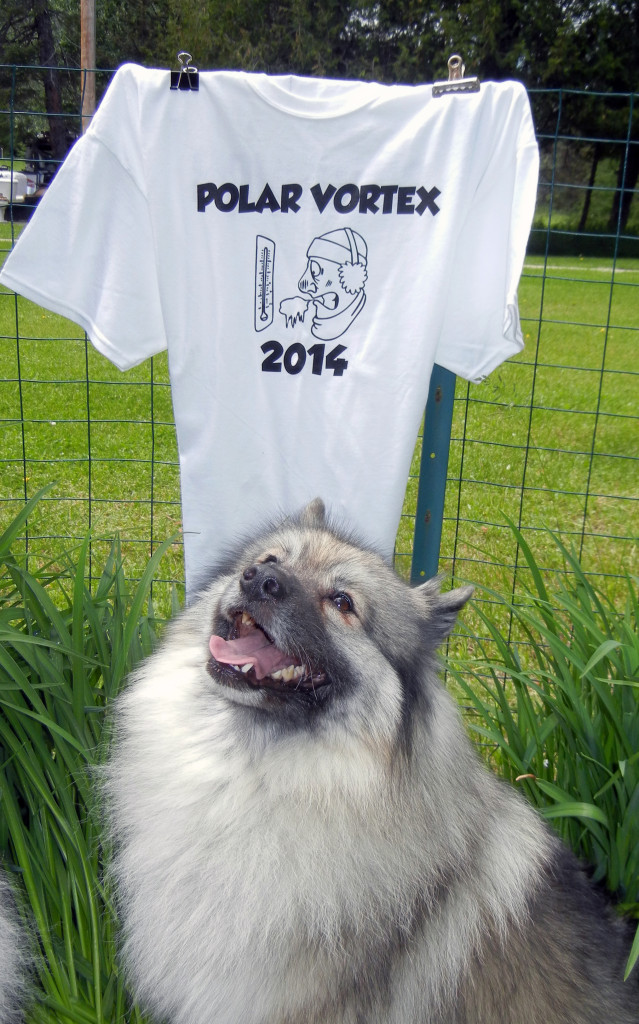Think you have a budding Lassie on your hands? Maybe you picked the little fluff ball in the corner because you felt sorry for her, but now that you have her home you still can’t get her out of the corner. Maybe you mistook eye contact with that feisty puppy as “bonding” only to discover he’s more inclined to rule the household than cuddle with you. Whether you want to head off behavioral problems or just insure your puppy grows up safe, secure, and happy, here are ten tips that will make your Fido or Fifi look and act like geniuses.
1. Beyond the rubber ball: Rubber balls exercise muscles and chew toys occupy the puppy who’s inclined to teethe on your favorite Reebocks. But, to stimulate the canine brain, try the Wiggly Giggly Ball, the Yuppy Puppy Treat Dispenser, or the Roll-A-Treat Cube; all available from national pet stores and catalogues. Not only is your dog occupied by “operating” the toy to get a treat, the toy’s problem solving aspect stimulates doggy brains.
2. The Find Me Game: During walks in the fields surrounding our house, my Keeshond Casey would invariably wander out in front of me. I’d then hide in the tall grass. He’d notice I was missing, track me, and find me.
You can do this in the house. Duck around a corner and call your dog or hide in a closet (leave the door open a bit so Fifi doesn’t scratch her way to you and create a behavioral problem). They get exercise searching for you, muscular and cerebral.
3. Obedience Train: How does obedience make a dog smarter? First, anything you teach a dog stimulates its brain. Second, it teaches your dog that you are their pack leader. Third, even if the dog isn’t smart he’ll look smarter if he’s obedient.
My collie Fawn was a prime example that Lassie was a myth. She’d walk through hot coals for me. Loyal, but not a smart thing to do. But, when commanded to sit and stay, she sat and stayed…and stayed…and stayed. This came in handy whenever my husband and I folded up the winter cover off the swimming pool and needed a third “hand” to anchor a corner. She looked like a genius just because she obeyed a simple command.
4. Play dates: AFTER little Fido/Fifi has had his/her vaccinations, arrange play dates with other puppies who have had their shots and are healthy, or adult dogs who are non aggressive with puppies. The more your puppy interacts with other dogs in a structured setting (you being the structure that dictates play level), the more appropriately Fido/Fifi will act with other dogs.
Why is this smart? Because puppies need to learn how to respond appropriately to other dogs’ body language in order to prevent being attacked. Don’t assume your puppy learned all his social skills while in the litter. Some dogs mature more slowly than others, some are bull headed, and some are taken away from the litter too early.
5. No more stay at home dogs: Take your dog in the car with you. Go to parks. Do you like the water? Introduce Fifi to your favorite swimming hole early.
Think introducing Fido to wheelchairs, walkers, and canes is only for pet therapy dogs? With the baby boomer generation maturing and weekend athletes over-doing, such apparatus are a common part of our environment. The more socialized to different situations your dog is, the less likely he or she is to be shy; and the socially adept always look smarter.
6. The dreaded slippery floor: Does Fifi lose bladder control at the mere sight of linoleum?
When I picked up my second Keeshond from her breeder’s, the puppies were climbing on a fiberglass tub turned upside down, slipping and sliding gleefully. You don’t need expensive equipment to familiarize your pup with various surfaces. Just use things from around the house like the breeder did to provide different types of footing for the pups to experience.
This made for an easy transition as I brought my 9 week old Copy, as in copyright, home in the middle of a remodeling project. Tarpon covered piles of lumber became her jungle gym. Ropes her tug toys. Cement blocks her personal obstacle course. By the time I introduced her to agility equipment, this dog had already developed a good sense of balance and was surefooted on a variety of surfaces.
Even if you aren’t interested in agility competition, a beginner’s class is a fun way to introduce your dog to a variety surfaces. Or you can play fetch on any hard-surface floor. Don’t rush it and make it fun. A dog who has learned that skidding off a slippery box didn’t hurt, isn’t likely to freak on linoleum, tile, or wood floors.
7. Handle Your Puppy: Touch their toes, feel their ears, lift their lips, rub their gums, brush their teeth. Not only will this make your dog easier to handle for grooming, but your veterinarian will think Fifi is brilliant because she stands still for an examination.
8. Quality food: Junk food in, groggy behavior out. Same as for humans. Yes, quality food is more costly per pound. But, you feed less because it takes less to nourish the dog. My 87 pound collie ate a mere 2 ½ cups of a high quality dry food a day and was not thin. You’ll also be grateful when you pick up after your dog. All that filler in cheap food eventually comes out as doggy waste.
9. Imprinting: Think of imprinting as long-term memory that never gets erased. Remember the movie about the little girl who taught orphaned geese to migrate by getting them to follow her in her ultralight? She had to show the geese the route because they thought she was their mother. Her presence as their caregiver had imprinted that on them.
In the case of dogs, you have about 16 weeks to imprint them. Whatever you do with your puppy in its first 4 months of life will be hard wired in their brains forever. This means fear behavior as well as good behavior. So be careful how you introduce those new experiences to your puppy in his/her early weeks.
But do take advantage of the opportunity. This is a great time to start with basic obedience such as sit or simple tricks like shaking a paw.
10. Tricks for treats: It never fails. I finish an obedience demonstration with my multi-titled dog and someone invariably asks if my dog knows any tricks. My Casey could jump a hurdle, fetch a dumbell, and return to me, yet he couldn’t shake paws…which generally netted a disappointed, “Oh.” Tricks. Everybody loves them. So, your final tip will help you decide which tricks Fido or Fifi have the aptitude for and how to break any trick down to trainable segments.
First, take advantage of your dog’s natural quirks and mannerisms to train a trick. Does your dog lift one paw when sitting? You’ve got the start of a handshake or a wave. Does your dog like to wriggle around on its back? You’re half way to a roll over. Combine a word with the action along with praise, praise, praise, and a treat or toy. Your dog will soon be rolling over on command.
Second, break the trick down into rewardable segments. I taught Copy to operate her bubble-gum machine-like treat dispenser by rewarding each small step she took toward completing the task. This is called shaping. I shaped her behavior by utilizing her natural curiosity and her tendency to use her paw.
The first time she touched the dispenser with any part of her body, I hit the lever and she got a treat. Next, I waited until she touched the dispenser closer to the lever before treating her. Next, she got a treat only when she touched the lever. When she touched the lever with her paw the first time, I made a huge deal out of it. She not only got extra treats from the dispenser, I whooped and hooted praise. After that, she got the treat only if she touched the dispenser with her paw. In about half an hour, she went from sticking her nose against the glass dome containing doggy treats to pressing a lever with her paw and rewarding herself.
Now this was a pretty complicated behavior. If you are thinking my dog is smarter than most, this proud doggy mom would love to agree. But, the fact is, Copy will leap into the air after a Frisbee without any thought on how she’s going to land. A couple crashes onto her hip and air-born Frisbees were banned from our backyard. What Copy had in her favor, however, was the benefit of the previous nine steps in this article.
She’d been stimulated with toys and games, handled properly, fed quality food, socialized to a variety of environments and situations, and taught that I am her trustworthy pack leader. That’s how you increase a dog’s smart quotient.


